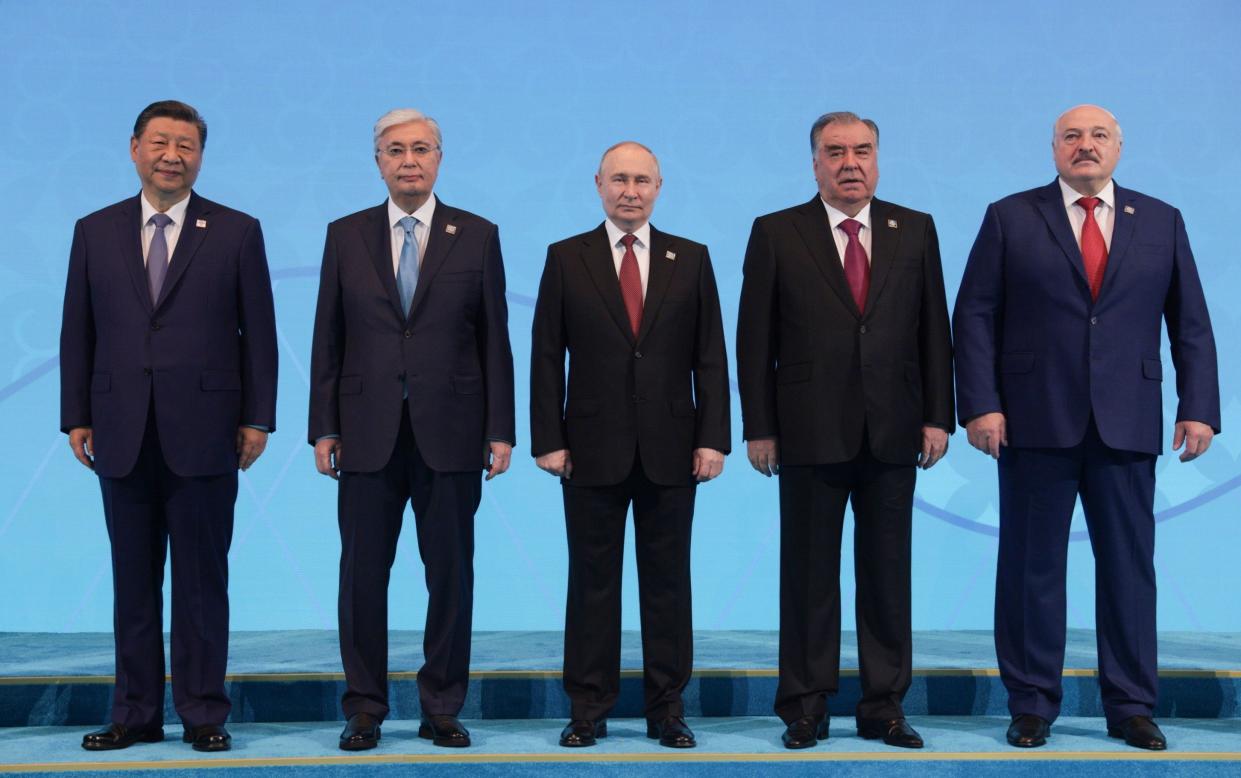Beijing is laughing at the West’s weakness

Russian aggression in Ukraine poses a threat to world peace and stability. China provides material support for Russia’s actions. All this is entirely clear. In Beijing, immediately after a meeting with Xi Jinping in April this year, US Secretary of State Antony Blinken said that “Russia would struggle to sustain its assault on Ukraine without China’s support”. This included selling huge quantities of machine tools and micro-electronics that would be used in the Russian defence industry.
In the last two years, Iran has sold around 200 Shahed 136 kamikaze drones to Russia, which has used them to attack military and infrastructure targets under guidance from Iranian experts. Other similar drones used in Ukraine may be Russian replicas of the Shahed 136.
As reported in The Telegraph, China and Russia have recently been collaborating on a project to produce Shahed-style drones for use by the Russian defence forces. European sources indicate that these have not yet been used in Ukraine, but if the factory opens, Russia could get access to far more than it could ever obtain from Iran.
Readers will recall an odd, embarrassing debacle in May this year when the UK defence minister Grant Shapps claimed to have seen “evidence that Russia and China are collaborating on combat equipment for use in Ukraine”. He went on the mention significant weapon flows from China to Russia. The US National Security Adviser swiftly distanced himself from this outburst, noting that he had not seen intelligence referring to direct sale of weapons.
Whether or not Mr Shapps was drawing on reports about the same Sino-Russian collaboration over drones, the US reaction to the recent revelations by European sources on the Chinese-Russian drone-cloning project is still to focus closely whether China will sell the Russians fully-assembled attack drones or kits that can be used to assemble them. In the surreal space where free-world scruples meet totalitarian zero-sum, precise “red line” definitions such as “lethal aid” matter to one side only.
The West clings to a notion that China selling finished weapons to Russia that will be used to kill Ukrainians constitutes “lethal aid”, punishable by secondary sanctions; but that selling components that can be used to make weapons and other military equipment does not. This situation may be inevitable in the rules-based system where crucial decisions over sanctions hinge on artificial technicalities, but it comes across as weakness and indecision - and this plays straight into enemy hands. Work-arounds are many and sanctions are de-risked.
Xi Jinping’s assertion that China is “neutral” over Ukraine about a regime which in essence keeps Putin’s war chest full by buying Western-sanctioned Russian energy, is devoid of credibility and merely shows up the contempt in which the Chinese Communist Party holds the established international order. This obvious fiction should be rejected outright. If we cannot bring ourselves to accept and proclaim such an obvious fact, what hope is there for Western consensus over how to build a viable, resilient China strategy worth the name?
Though in global terms Britain’s individual role in standing up to Beijing is limited, it is important enough in terms of liberal geostrategic alliances to deserve a set of clear priorities. Yet it is three fraught years since the House of Lords International Relations and Defence Committee published its report “The UK and China’s security and trade relationship: A strategic void”. This noted that “promising to balance concerns around values or security with trade interests does not amount to a strategy”, and that “the belief (China) can be encouraged into co-operative behaviour simply by engagement is misplaced”. Crucially, it identified “the possibility of conflict over Taiwan” as the greatest risk to UK relations with China, and that “managing this should be the Government’s top strategic priority”.
What was a void then is so even more disastrously now that China’s interests are grimly engaged in both Ukraine and the Middle East as well as over Taiwan. Putin serves Beijing’s purposes as a savage ally of convenience in assailing and weakening the West. Hybrid warfare has been waged by China against its Western rivals for a decade; this will intensify in parallel with overt Chinese preparations for outright war across the Indo-Pacific and beyond. Here, we vacillate about electric vehicles. There, they have plans to bury us. Will our elected leaders, new and old, have the courage to deter and to resist?


